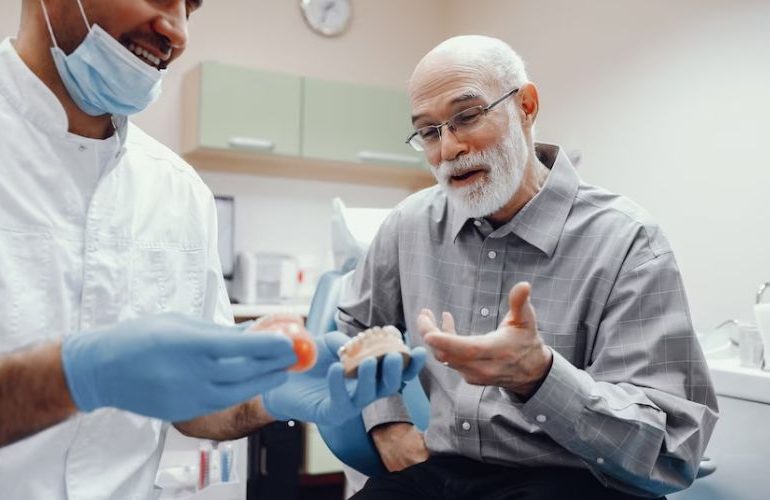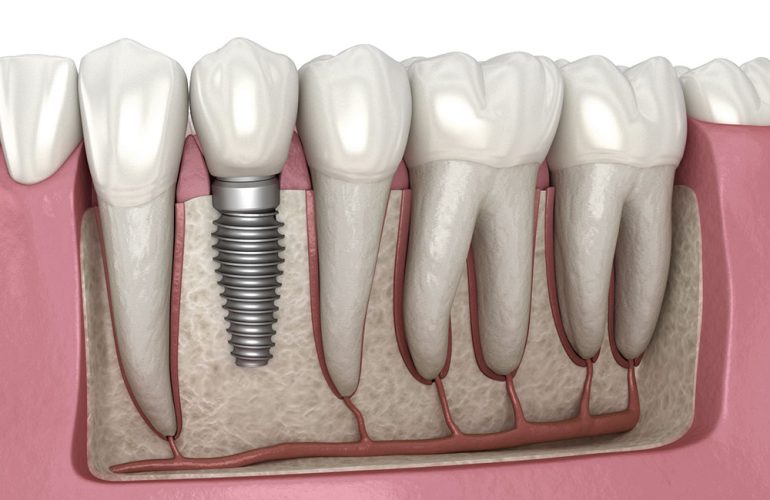Are you considering getting dental implants and wondering how to prepare for the procedure? Look no further! A dental implant is a life-changing investment in your oral health that can give you back your smile and confidence. However, like any medical procedure, it’s essential to be well-prepared beforehand. In this blog post, we’ll provide valuable tips and advice on how to get ready for your upcoming dental implant surgery so that you feel confident and comfortable throughout the process. Read on to learn more!
What is a Dental Implant Procedure?
A dental implant procedure is a surgery that replaces one or more missing teeth with artificial teeth. It is a very common procedure, and it has a high success rate. The surgery itself is relatively simple, and it can be performed in an outpatient setting.
There are two main types of dental implants: endosteal (in the bone) and subperiosteal (on the bone). Endosteal implants are the most common type of implant, and they are made of titanium. Subperiosteal implants are made of metal frames that are placed on the jawbone below the gum tissue.
The first step in any dental implant procedure is to consult with a dentist to see if you are a good candidate for the surgery. If you are, the next step is to have a CT scan or X-ray taken of your mouth so that the dentist can develop a treatment plan. Once the treatment plan is developed, you will undergo surgery to place the implant(s).
After the surgical site has healed, which usually takes 4-6 weeks, you will return to have your artificial teeth placed on top of the implant(s). The entire process from start to finish can take several months, but it is worth it for most people as it gives them back their smile and improves their quality of life.
Benefits of Dental Implants
If you are considering a dental implant procedure, you may be wondering what the benefits are. Dental implants offer many advantages over other tooth replacement options. They are strong and durable, they look and feel like your natural teeth, and they allow you to eat and speak normally. Additionally, dental implants can help to preserve the bone in your jaw and prevent gum deterioration.
If you are missing one or more teeth, dental implants can give you back your smile. They can also improve your chewing ability and make it easier to keep your mouth clean. Unlike dentures, which can slip and cause irritation, dental implants are securely anchored in your mouth. This means that you can eat all of your favorite foods without worry.
Dental implants are also much more comfortable than dentures. Because they fuse with the bone in your jaw, they become a part of you. Dentures, on the other hand, can rub against your gums and cause soreness.
If you are considering a dental implant procedure, talk to your dentist about the benefits. He or she will be able to answer any questions you have and help you decide if dental implants are right for you
Preparation for the Procedure
When you are getting ready for a dental implant procedure, it is important to follow your dentist’s instructions. You may be asked to brush and floss your teeth more carefully, or to use an antibacterial mouthwash. You may also be asked to stop smoking, at least temporarily.
It is important to eat healthy foods and to get plenty of rest before your procedure. You should also avoid drinking alcohol for at least 24 hours before your procedure.
Types of Dental Implants
There are several types of dental implants that your dentist may recommend, depending on your individual needs. The most common type of dental implant is the endosteal implant, which is placed directly into the jawbone. Another type of dental implant, known as a subperiosteal implant, is placed under the gum but on top of the jawbone. In some cases, a combination of both types of implants may be used. Your dentist will discuss the best option for you based on your unique situation.
Risks and Side Effects of Dental Implants
When considering dental implants, it’s important to be aware of the risks and side effects associated with the procedure. While dental implants are generally safe and effective, as with any surgery there are potential risks involved. These include infection, nerve damage, sinus problems, and implant failure.
Infection is one of the most common risks associated with dental implant surgery. Infection can occur at the site of the implant or in the surrounding tissue. If left untreated, an infection can lead to serious complications such as bone loss or implant failure. To reduce the risk of infection, it’s important to practice good oral hygiene and follow your dentist’s instructions for care after surgery.
Another potential risk is nerve damage. This can occur if the nerves in the jaw are damaged during surgery. Nerve damage can cause numbness, tingling, or pain in the lips, gums, chin, or tongue. In some cases, nerve damage is temporary and will resolve on its own. However, in severe cases, nerve damage can be permanent.
Sinuses are another potential complication of dental implants. If the sinuses are not properly taken into account during surgery, they can become irritated or infected. This can lead to pain, pressure, and difficulty breathing through the nose. In some cases, a sinus lift may be necessary to correct this problem.
Finally, implant failure is a possibility with any type of surgery. Although dental implants have
Aftercare Tips for a Successful Recovery
After your dental implant procedure, it is important to take care of your implants to ensure a successful recovery. Here are some aftercare tips to follow:
– Brush and floss your teeth as usual, being careful not to damage the implants.
– Avoid hard and chewy foods for the first few weeks.
– Rinse your mouth with salt water or an antibacterial mouthwash after eating.
– Attend all follow-up appointments with your dentist.
Conclusion
Dental implant procedures can be an intimidating experience, but with the right preparation and understanding, it doesn’t have to be. We hope these tips have helped you feel more confident in your decision to pursue a dental implant procedure and given you a better idea of what to expect. Remember that your dentist is always available for any questions or concerns, so don’t hesitate to reach out if you need additional help preparing for the procedure.
FAQs
The entire process of getting a dental implant can take several months. This includes the time it takes for your jawbone to heal after surgery and for your new tooth to be made and placed.
You should brush and floss regularly to ensure that your mouth is clean before surgery. Your dentist may also recommend that you use an antibacterial mouthwash to help reduce the risk of infection at the surgical site.
During the procedure, your dentist will make an incision in your gums and place the implant into your jawbone. You will then be given time to heal before having your new tooth placed on top of the implant.




